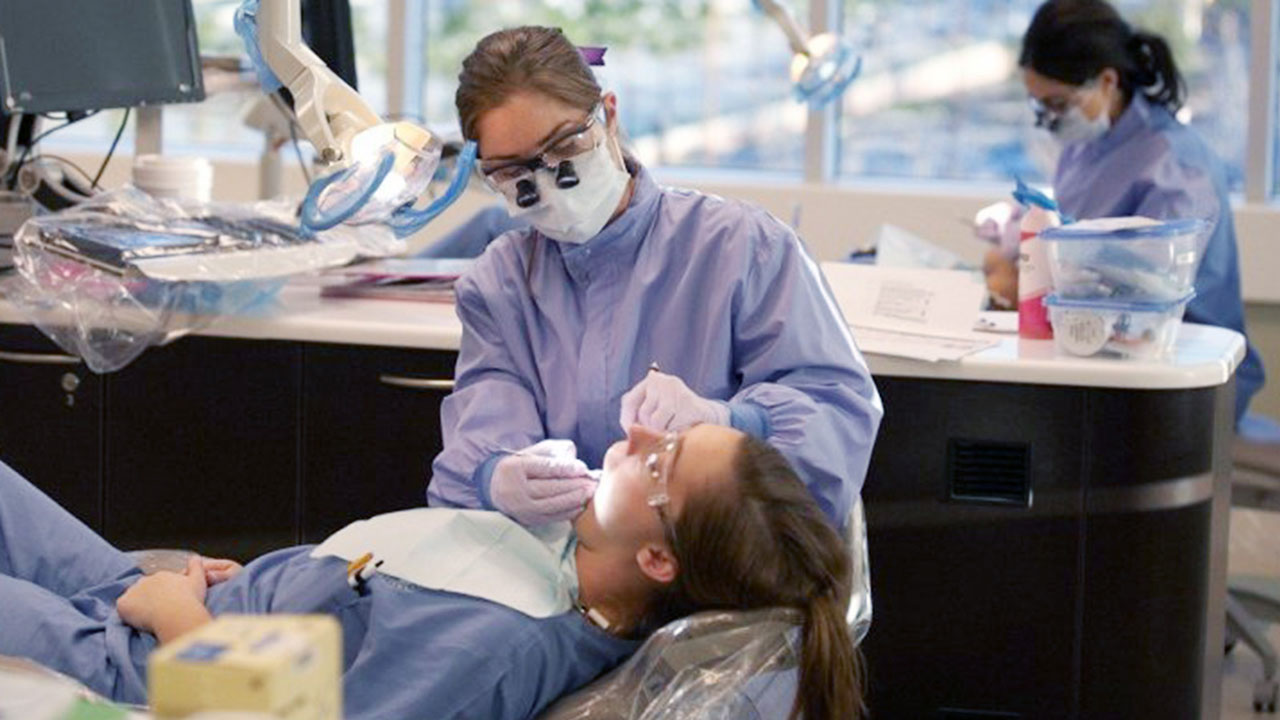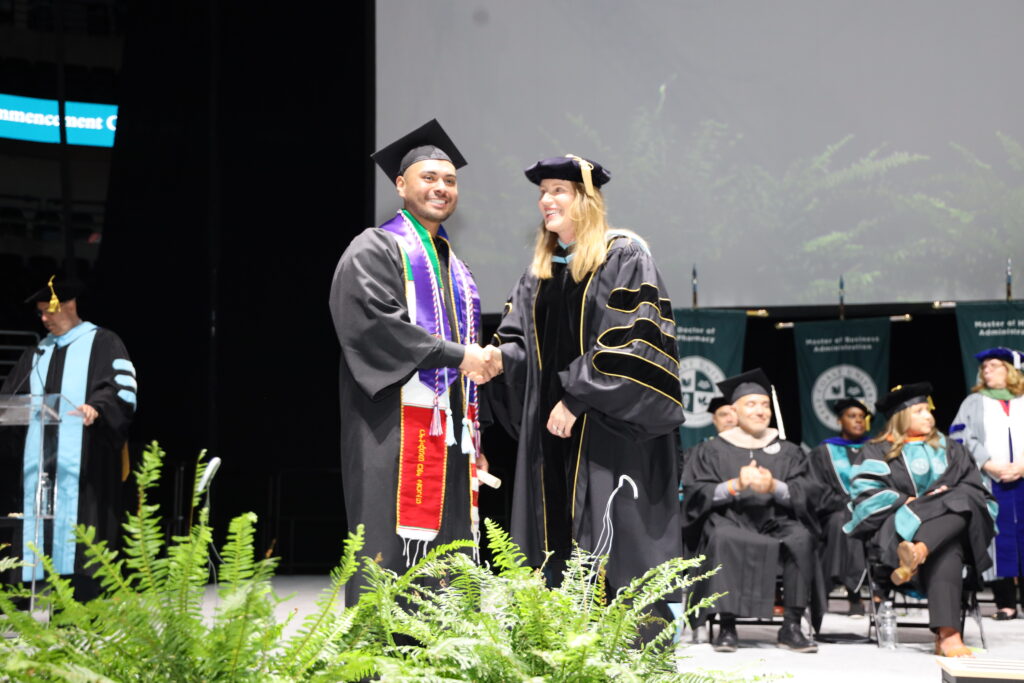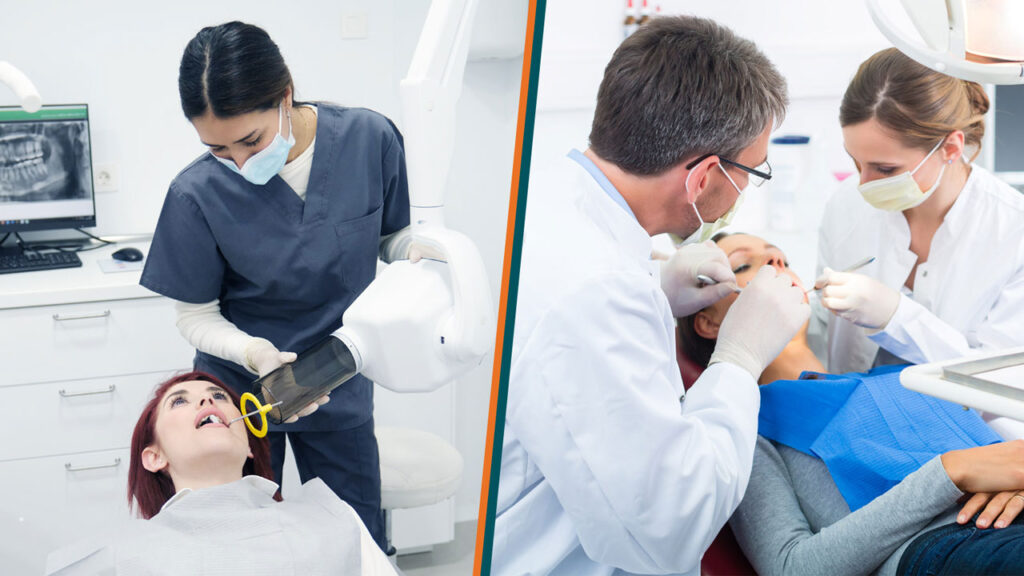These days, it seems like you can do almost anything online, from shopping to banking to streaming your favorite TV shows. But can you study dental hygiene online?
If you’re interested in becoming a dental hygienist, you won’t be able to get all the training you need from a virtual program. This patient-focused career requires a well-rounded education combining both classroom instruction and clinical practice. With practical hands-on experience, you can gain the skills and confidence you need to pursue a career in dental hygiene.
This article will walk you through everything you should know about studying dental hygiene online and the requirements to become a dental hygienist.
Can You Earn a Degree in Dental Hygiene Online?
No, you typically cannot earn a dental hygiene degree online. To become a licensed dental hygienist, you must complete a program that includes hands-on clinical training. This real-world experience can help you develop the clinical skills you will use in your future career.
For one West Coast University-Orange County graduate, clinical training gave him the confidence he needed for his future career path. Jonathon says this hands-on experience “engrains in you the skills and values that you need as a dental hygienist.”
For those who already have an associate degree and want to further their education, there are online dental hygiene programs that result in a bachelor’s degree. However, you can only enroll in those programs if you’re already a practicing dental hygienist.
What Are the Requirements to Become a Dental Hygienist?
Dental hygienists help patients protect their oral health. As a dental hygienist, your duties may include cleaning patients’ teeth, taking X-rays, and offering advice on proper oral hygiene. Before you get started in this career, you will need to complete a dental hygiene program and become licensed.
Here are the typical requirements to become a dental hygienist:
1. Complete a Dental Hygiene Program
Dental hygienists need at least an associate degree, but many choose to get a bachelor’s degree because it offers more career options, according to the American Dental Hygienists’ Association (ADHA).
Depending on the program, it typically takes around 3 years to earn a dental hygiene degree. Some classes you may take in a dental hygiene program include:
- Medical terminology
- Anatomy
- Pharmacology
- Oral pathology
- Periodontology
- Patient education
- Dental public health
In addition to coursework, dental hygiene programs usually include laboratory and clinical practice components. This training allows you to expand on the skills you’ve learned in the classroom and practice techniques under the supervision of licensed professionals.
2. Pass a National Exam
Once you’ve earned a dental hygiene degree, you can sign up to take the National Board Dental Hygiene Examination (NBDHE). This written exam includes 350 multiple-choice questions about dental hygienists’ core responsibilities. It tests your knowledge of various concepts, including:
- Anatomic sciences
- Assessing patient characteristics
- Obtaining and interpreting radiographs
- Planning and managing dental hygiene care
- Performing periodontal procedures
- Using preventive agents
- Providing supportive treatment services
- Professional responsibility
For more information about the exam and how it’s structured, you can check out the NBDHE Candidate Guide.
3. Meet State Requirements
Every state has its own requirements for becoming a licensed dental hygienist. In most states, you need to pass a clinical examination.
For example, you must take a law and ethics examination to become a licensed dental hygienist in California. If you’re applying for jobs elsewhere, you can check with the state’s dentistry board for specific licensing requirements.
Advantages of On-Campus Dental Hygiene Programs
Dental hygienists spend their days interacting with patients and working closely with dentists. For this reason, in-person clinical training is an invaluable part of your dental hygiene education. The advantages of this instruction include:
- Hands-on training: An on-campus program gives you the opportunity to practice your newly learned skills under the direction of experienced instructors. You can get individualized, real-time feedback to build your skills and confidence.
- Access to equipment: Many in-person programs provide access to technologically advanced equipment you’ll use on the job, such as X-ray machines. You can become comfortable using these tools in real-world settings.
- Real-life preparation for licensing exams: The practical experience you gain through clinical training can help you prepare for the national and state licensing exams you’ll take after graduation. Often, this training is aligned with the clinical and care-based topics you may be tested on.
- Networking opportunities: On-campus programs allow you to build relationships with experienced faculty and other students. The connections you make in school can serve you well, especially as you start your career.
Gain Real-Life Experience Through WCU’s Dental Hygiene Program
Studying dental hygiene online might sound like a good idea, but it won’t teach you the practical skills you need to learn for this healthcare career. Completing an on-campus program with personalized instruction and hands-on training is the best way to prepare for a career in dental hygiene.
At West Coast University, our Bachelor of Science in Dental Hygiene (BSDH) program offers plenty of opportunities to gain real-life experience. You’ll have access to a simulation lab with industry-current dental hygiene equipment, so you can practice your skills in real-world settings. As you get closer to graduation, you can begin working at our on-campus WCU Dental Hygiene Clinic, which provides free care to patients in the community who need it.
Our BSDH program offers flexible start dates at our Orange County campus, and you can earn your degree in as little as 34 months. If you’re ready to get started, schedule an information session to learn more!
WCU provides career guidance and assistance but cannot guarantee employment. The views and opinions expressed are those of the individuals and do not necessarily reflect the beliefs or position of the school or of any instructor or student.



